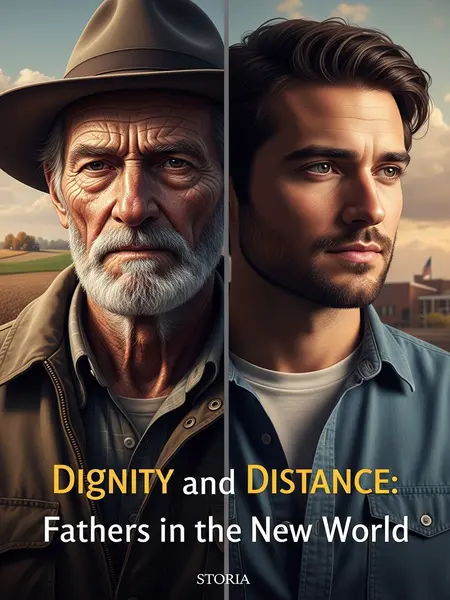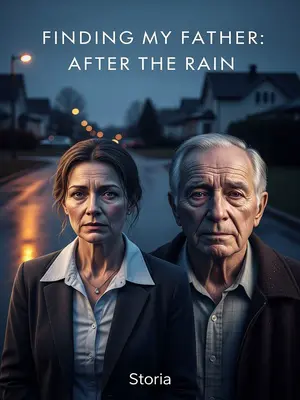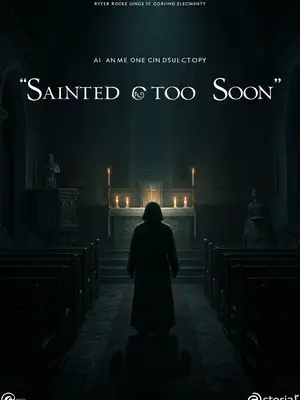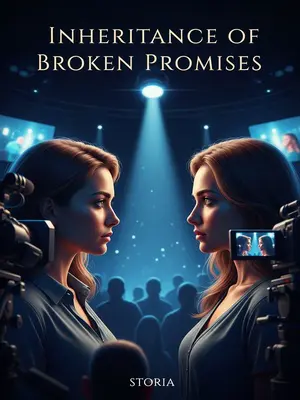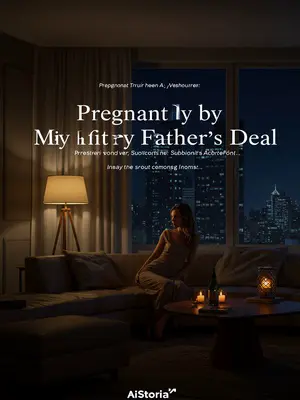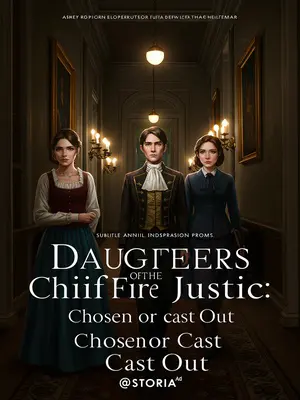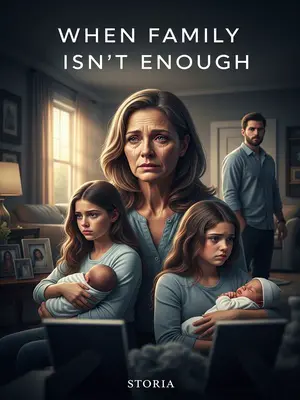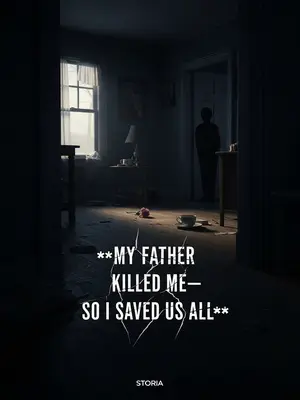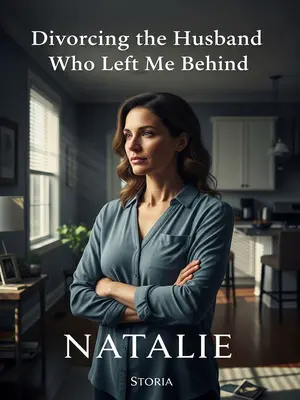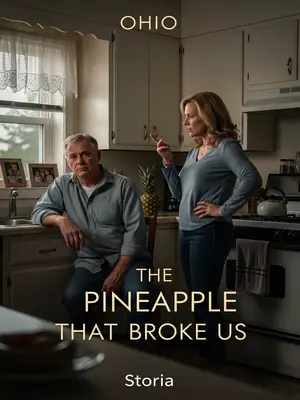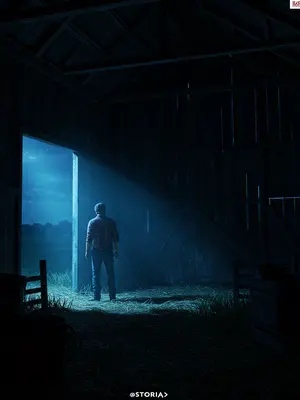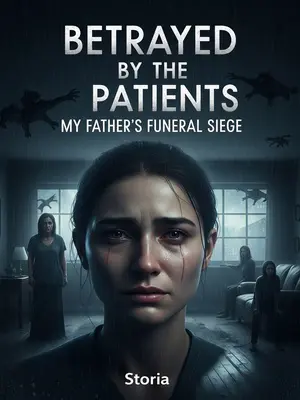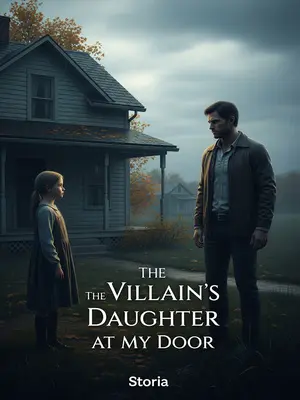Chapter 5: The Limits of Shelter
But while glaring at me, he’d carefully take apart the razor and hand me the blade-less handle.
That was his way of saying, “I see you. I get it.” Even in his sternness, there was a kind of tenderness. I’d stand beside him, pretending to shave, feeling grown-up and important. For a few minutes, we were equals.
Old Hank might have seemed boring, but he was my rock.
He was the one thing I could count on. The world could be wild, but Old Hank was steady as a mountain. I never doubted that, not for a second.
Once, while walking to the market with Old Hank, I stopped halfway to rest while he went to buy water. Suddenly, a big black dog came toward me.
The air was thick with summer heat, cicadas buzzing in the trees. I sat on the curb, swinging my legs, when the dog appeared—huge, wild-eyed, teeth bared. My heart hammered in my chest. I was sure I was done for.
The dog stared at me with these spooky green eyes. I was convinced it wanted to eat me.
Kids have a way of imagining the worst. I sat there, frozen, convinced this was the end. My mind spun out all the worst-case scenarios.
Then it happened—the dog lunged at me, barking. I spread my arms and ran, wishing I could fly. It chased me, barking madly, destroying my will.
I ran blindly, arms flailing, the world a blur of noise and fear. I could hear its claws scrabbling on the pavement, feel its hot breath at my heels.
At that moment, I looked up and saw a tall, thin figure step out from the orange-red half-sun. That black silhouette moved steadily in the halo. Instantly, the world changed, and the theme song from "Rocky" played. Old Hank always appeared at the most dangerous moment.
He was a silhouette against the setting sun, larger than life.
Old Hank charged up without a second thought, letting out a deep roar: “Go!” He said only that one word, then stood between me and the black dog, staring it down. I thought his eyes must have been shooting fire. Like magic, the black dog instantly wilted and slunk away.
The dog yelped and backed off, tail between its legs. Old Hank didn’t move, didn’t blink. He just stood there, solid as a wall, until the danger passed.
I ran to Old Hank, tears in my eyes.
I clung to his side, burying my face in his shirt. He ruffled my hair, grunted, and we walked home in silence. That night, I dreamed of black dogs, but I also dreamed of Old Hank, always there to save me.
After that, I was terrified every time we went out.
It became my talisman—one hand always clutching his shirt, as if nothing bad could happen as long as I stayed close.
When I played in the yard at home, even when I was running wild, I’d always look up at the third-floor balcony to see if he was there, smiling at me. As long as he was nearby, I felt safe.
His presence was a shield. The world was big and scary, but Old Hank made it feel manageable.
Stubbornness
They say your dad’s your first hero, but growing up means realizing he’s just human, too.
It’s a hard truth, but it’s also the way of things. We spend our childhoods looking up to our dads, and our adulthood realizing they’re just as flawed as we are. It’s a kind of growing up that never really ends.
Aside from those small, happy moments of childhood, as I got older, I grew into a man as tall as Old Hank. And I started to see that behind his tall, silent figure, there were limits.
I started to see the cracks—the places where his strength turned to stubbornness, where his caution became fear. It was a shock, realizing he didn’t have all the answers. But it also made him more human.
I don’t know if Old Hank was ever carefree before my granddad died. The Old Hank I knew was always cautious, always trying to shield himself and his family from every risk by keeping his head down. Whenever he faced a choice or suggestion, his instinct was always to stick with what he knew, to meet every change by not changing.
He’d survived too much to take chances. Change, to Old Hank, was a threat.
After he got married, Old Hank started moving up at work. At the time, the power plant wanted to send someone to open an office in Chicago. For folks in Ohio back then, Chicago was a symbol of freedom and dreams—a world away.
The offer was a big deal—a chance to move up, to see the world beyond the Ohio border. For Old Hank, it was a dilemma.
The managers appreciated Old Hank’s work ethic and wanted to send him to Chicago. Everyone thought it was a great opportunity. Old Hank was anxious but felt he had no reason to refuse.
He must have lost sleep over it, weighing every possibility, turning it over in his mind until it became a burden. Ambition warred with fear, and fear usually won.
Just as they were about to set off, a reason not to go to Chicago finally fell from the sky—my mom was pregnant with me. Although the two might not have conflicted, Old Hank’s first reaction to the news was, “Great, we don’t have to go to Chicago.” The next day, he applied to stay in Ohio.
He latched onto the excuse with relief, as if fate had given him permission to stay put. My mom was disappointed, but Old Hank was content.
My mom later often lamented, “If only we’d gone to Chicago back then.” But Old Hank didn’t care, and truly didn’t care: “A golden nest, a silver nest, none is better than your own doghouse.”
It became a family refrain. My mom would daydream about what might have been, but Old Hank stood firm. Home was home, no matter what.
For Old Hank, the ideal was for life to never change.
He clung to routines like a lifeline.
In the past twenty years, Old Hank and my mom bought two houses during the housing boom, but both were left furnished and unused; they still lived in the old duplex next to the power plant.
The houses were investments, symbols of success. But Old Hank never saw the point in moving. The old duplex was good enough. It had history, memories, a kitchen that always smelled like coffee and fried eggs.
When they bought the second house, I had graduated from college. My mom seemed to see a new chapter in life, encouraged Old Hank to use their savings to buy a 1,400-square-foot place in the new Maple Heights subdivision, and threw herself into decorating it as if it were an ancestral home.
She picked out curtains, painted the walls, filled the place with new furniture. But Old Hank dragged his feet, finding reasons to delay the move.
However, from the day the new house was finished, Old Hank found all sorts of reasons to delay moving in: first, he said work was too far; after two years and retirement, he said the old place often had familiar visitors and mail, so it couldn’t be left empty. This dragged on, and my mom got used to it. When people asked, “Why do you still live in that old small place?” she would say, “Our new place is in Maple Heights; we live in both.”
It became a running joke among the neighbors. My mom would laugh it off, but I could see the disappointment in her eyes. Old Hank, meanwhile, was perfectly happy in his worn recliner, watching the evening news.
The new house’s only purpose was to save face for my mom, but in reality, she still lived with Old Hank in the old building with peeling paint, battling the stubborn gas stove every day.
It was a compromise—her dream deferred, his comfort preserved. That’s marriage, sometimes. You learn to live with each other’s quirks, even when they don’t make sense.
He always stayed like a loyal dog in his old home, waking up at the same time every morning, exercising, going downstairs for milk, boiling it into oatmeal with peanuts and pickles, going to work, coming home, eating dinner while watching the news, then sitcoms on NBC, then washing up and going to bed.
His life was a clockwork of habits. He found peace in repetition, in the small rituals that marked the passing of time.
He tried to draw his understanding of the world as a circle. As long as I was in that circle, his heart was at ease.
I was his anchor, the thing that kept his world from spinning out of control. But I was growing up, and the circle was shrinking.
When I was in middle school, the school organized a summer camp to Washington, D.C. I excitedly went home to ask Old Hank, and he said only three words: “You’re not going.”
